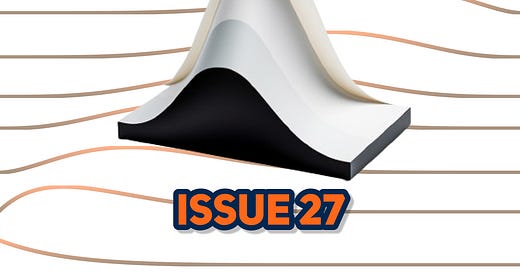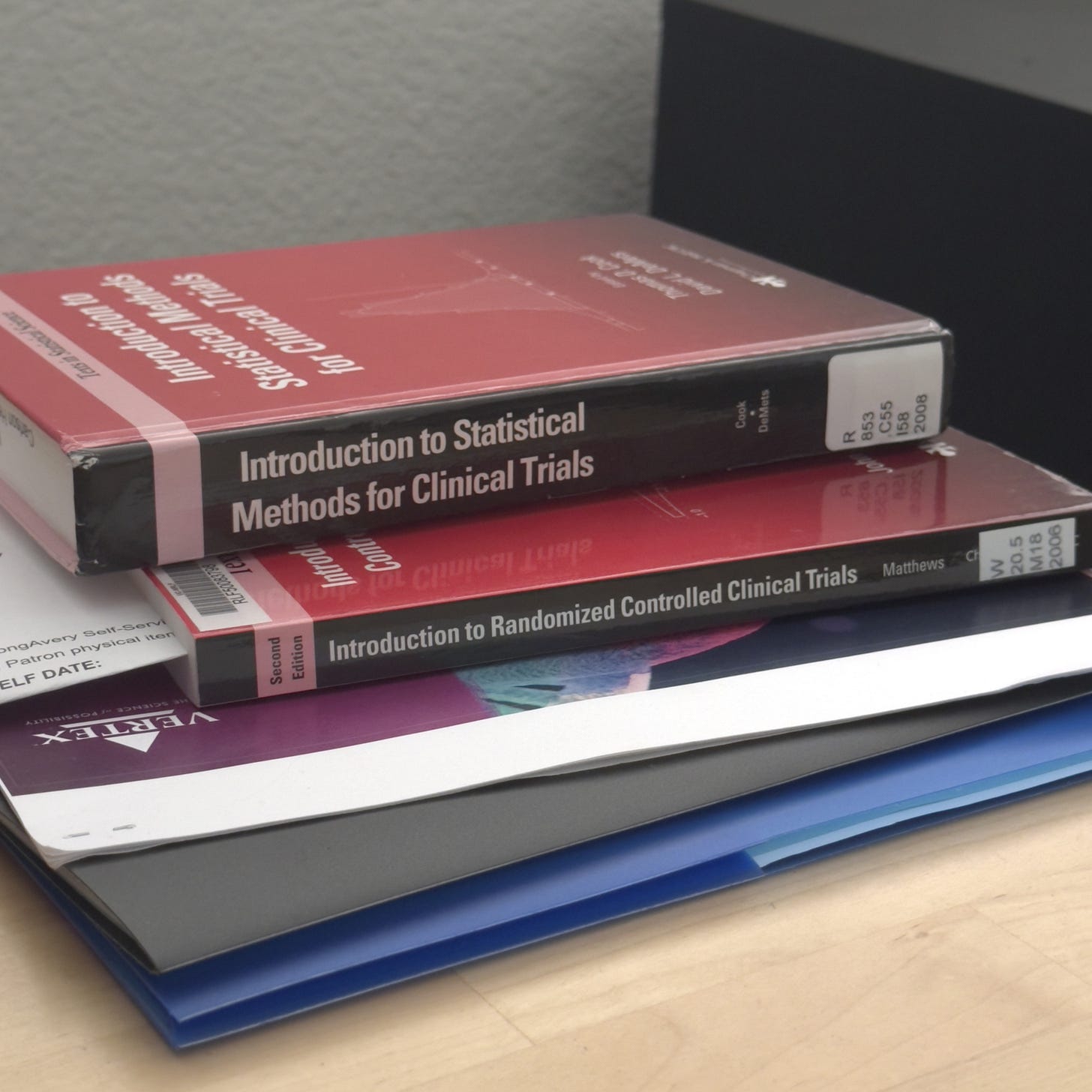Issue #27: 3 tips for Master's students
A Masters is different from an undergraduate degree, so your approach should be different
The TLDR
📰 What is this issue about?
A new school year has started. A former MS student and current Ph.D student has unwarranted advice for MS students.
📺 What’s happening with videos?
Recent — Explaining linear regression: a look at the linear regression model, how to interpret it, and how to work with one of it’s most important hypothesis tests
Upcoming: A video on why I hate the median
In this issue…
I wanted to repost some advice that I had given out this past week. The new school year just started for my (biostatistic) department, and new students have started here. A certain question came up a lot:
How do I make the most out of my experience here?
This will always be a question that pops up so long as students enter graduate school. Here’s my two cents for this question:
1. Focus on mastering the skills from fundamental classes
A Master’s program is only two years. That’s not a lot of time. It makes sense that someone would want to “make the most of it”, especially since many of them are paying out of pocket for it.
This first bit of advice was something my Master’s advisor told me early on, and it has paid dividends in terms of benefits.
In your first year, you are probably learning all of the fundamental skills needed for your major. In biostatistics, this means: basic hypothesis tests, linear regression, generalized linear models, longitudinal analysis and survival analysis. Students should be able to help with basic research projects with all these tools.
Rather than try to find a research project early (more on this later), a student should really focus on deeply learning the core skills from these classes. And by deeply learn, I do not mean get an A in the class, though it will follow natually from it.
The reason for this is because Master’s students are often put in charge of small-scale projects and showing you can be independent will go a long way. Being able to talk about independent struggling helps so much in the way of interviews. In all my interviews for internships, I’ve been asked to talk through past projects.
Another reason for this is that, like it or not, there is grade inflation in graduate school. Speaking from personal experience as a TA, the professor wants to spend as little time debating with students about grades. As a result, curves will shift towards high B to low A. As a result, it is much harder to stand out as an applicant when most of your class is getting an A in the class. Consequently, being able to discuss the ins and outs of different methods — something acquired with deep understanding of a topic — makes you a much more effective statistician.
Lastly, strong fundamentals make it easier to finish projects faster. Most MS projects are simple analyses for papers, so the faster you can produce good results, the more you can talk for interviews.
2. Start talking to professors early, but not to solicit work
In a similar vein, you should also start conversations with professors while you’re building your knowledge. They are the people you most likely will get projects from, so building rapport early will be helpful when you do have skills.
But here’s what you shouldn’t do: Do not just email a professor and ask for work. From your perspective, it may seem like you’re offering free labor (and for the most part, you are), but you are also giving work to this professor. It will not always be clear to them what you are capable of and what work is even possible for you to do. You want to make it as effortless as possible for them to think, “Yeah, they can handle this.”
And to do this, you should be adhering to Tip 1. In the meantime, it doesn’t hurt to start talking to them and asking what they do. If you’re like most students, then you probably don’t know exactly what you want to do or even what kinds of work are out there. These early conversations with professors can help inform you on these missing details.
Most professors do not have the time to update their research interests on school websites. I cannot count how many times I’ve asked out Topic A to a professor, and they respond with:
"Oh, I haven’t worked with Topic A for a while”.
Early chats help you to avoid going in misinformed. They get your name into the professor’s head, and when it comes time to choose among possibly many MS students, then you are more likely to come to mind.
When you’re done with classes and have good fundamentals, you’ll be ready to do good work and have a better chance of nice recommendation letters or references.
3. Exploit the school VPN as much as you can
This is probably a more general school tip, but I didn’t truly appreciate it until I was an MS student.
Your school will most likely have a VPN that you can use to access school resources from your laptop when you are off-campus. This includes resources from the library, which may potentially have electronic copies of textbooks. With the school VPN, you can probably download these for free! Or in the very least, request that your school library get a physical copy from another library.
In other words, unless you’d like a copy of a textbook for yourself, you should try to get it via school VPN. It’s free, it comes with being a student, and it’s a resource that the general public doesn’t have.
Even if you don’t need a textbook for a class, virtually free textbooks are useful for another thing: building knowledge that isn’t readily available from classes. If you want to learn more about causal inference or a specific field, then a textbook is probably available for you to learn from. After a quick Google search, you can look it up on your school library VPN and presto! You have a resource you can learn from.
VPNs are not just useful for textbooks for your courses, but also for accessing research manuscripts. Most publishers hide manuscipts behind insane paywalls, but a school VPN should allow you to access these for free. When you’re learning to read through papers, these are essential for building up your literature review.
Hope this was helpful, see you in the next one
Christian
Other Stuff
🧐 What am I enjoying right now?
Book — I’m reading Ross and Pekoz’s A Second Course on Probability to learn probability more rigorously. It’s kicking my ass, so I’ve been looking at How to Prove It to help improve my proof skills.
Thing — Learning some Tagalog on Glossika so that I can talk to my grandparents
📦 Other stuff
I wrote guided solutions to problems to Andrew Gelman’s Bayesian Data Analysis. It’s for advanced self-learners teaching themselves Bayesian statistics





